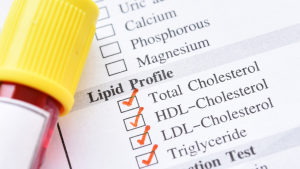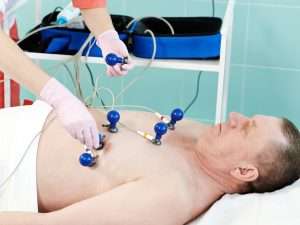Understanding the Connection Between Emotional Trauma and POTS
Postural Orthostatic Tachycardia Syndrome (POTS) is a disorder of the autonomic nervous system that primarily affects blood circulation, often resulting in symptoms such as dizziness, rapid heart rate upon standing, and chronic fatigue. Although POTS is multifactorial in origin, emerging evidence suggests that emotional trauma and chronic stress may contribute to autonomic dysregulation, potentially exacerbating POTS symptoms. While a direct causal link remains under investigation, understanding this relationship is crucial for a comprehensive treatment approach.
How Emotional Trauma Affects the Autonomic Nervous System
Emotional trauma and prolonged stress can influence autonomic function through several mechanisms:
- Excessive Sympathetic Activation: Chronic stress can lead to prolonged activation of the “fight-or-flight” response, resulting in increased heart rate and blood pressure fluctuations.
- Vagal Dysfunction: The vagus nerve plays a key role in mediating parasympathetic (rest-and-digest) responses. Trauma can impair vagal tone, potentially worsening symptoms such as dizziness and heart rate irregularities.
- Hormonal Dysregulation: Elevated levels of stress hormones like cortisol and adrenaline may disrupt blood volume regulation and vascular tone, further contributing to POTS symptoms.
- Inflammatory Response: Emotional stress is linked to systemic inflammation, which may affect autonomic pathways and overall cardiovascular function.
Trauma and Dysautonomia: Exploring the Link
Many patients with POTS report symptom flare-ups following episodes of intense emotional distress or trauma. Although research is ongoing, these observations support the hypothesis that stress-induced autonomic dysregulation can contribute to the clinical manifestations of POTS, particularly in those who may have a genetic or predisposing risk.
Psychological Factors in POTS
- Anxiety and Panic Attacks: Anxiety is common in POTS patients. Whether anxiety is a cause or a consequence of autonomic dysfunction, managing stress can be a critical component of treatment.
- Post-Traumatic Stress Disorder (PTSD): Studies indicate a higher prevalence of PTSD in individuals with POTS, suggesting that the chronic stress associated with traumatic experiences may further impair autonomic regulation.
- Depression and Fatigue: Emotional trauma can lead to depressive symptoms and persistent fatigue, which may compound the challenges of managing POTS.
POTS Diagnosis and Management
For individuals experiencing POTS symptoms potentially linked to emotional trauma or chronic stress, a thorough medical evaluation is essential. Diagnostic methods typically include:
- Tilt Table Testing: To assess changes in heart rate and blood pressure with postural changes.
- Continuous Monitoring: Heart rate and blood pressure tracking help identify autonomic fluctuations.
- Comprehensive Patient History: A detailed review, including emotional and psychological stressors, is critical to understand the full clinical picture.
Treatment Approaches
Managing POTS effectively often requires addressing both physical and psychological factors:
Physical Interventions
- Hydration & Electrolyte Balance: Ensuring adequate fluid intake and appropriate electrolyte consumption is key.
- Medications: Drugs such as beta-blockers or fludrocortisone may be used to help regulate heart rate and blood pressure.
- Compression Therapy: Compression garments can assist in improving circulation and reducing blood pooling.
Psychological Interventions
- Cognitive Behavioral Therapy (CBT): Helps manage stress and anxiety, potentially reducing the impact of autonomic dysregulation.
- Trauma-Informed Care: Working with mental health professionals who specialize in trauma can be beneficial.
- Relaxation Techniques: Practices such as deep breathing, meditation, and yoga may help balance the autonomic nervous system.
When to See a POTS Specialist
If you experience persistent or worsening symptoms, especially in the context of chronic emotional stress or trauma, consulting a specialist is crucial. The Heartbeat Clinic provides expert evaluation and personalized treatment plans, serving patients in both Dallas and McKinney. Our multidisciplinary approach ensures that both physical and psychological aspects of POTS are addressed.
Conclusion
While the link between emotional trauma and POTS is complex, evidence suggests that chronic stress and trauma can contribute to autonomic dysregulation and worsen symptoms. A comprehensive treatment strategy, including both medical and psychological interventions, can improve overall outcomes.
For specialized care in Dallas and McKinney, Heartbeat Clinic McKinney offers expert guidance and personalized treatment to help manage POTS effectively.
Book an appointment today—Contact Us for expert care and a tailored treatment plan!
4o
Frequently Asked Questions (FAQs)
- Can emotional trauma cause POTS?
Current research suggests that while emotional trauma may not directly cause POTS, it can contribute to autonomic dysregulation, which may exacerbate symptoms. - How does chronic stress affect the autonomic nervous system?
Chronic stress can lead to prolonged sympathetic activation, hormonal imbalances, and increased inflammation, all of which may negatively impact autonomic function. - Is there a link between PTSD and POTS?
Some studies have found a higher incidence of PTSD in POTS patients, suggesting that trauma-related stress may play a role in autonomic dysfunction. - What symptoms might be aggravated by emotional trauma in POTS?
Symptoms such as dizziness, rapid heart rate, fatigue, anxiety, and panic attacks may be intensified by stress-related autonomic dysregulation. - How is POTS diagnosed?
Diagnosis typically involves tilt table testing, continuous heart rate and blood pressure monitoring, and a comprehensive review of the patient’s medical and psychological history. - What treatment options are available for POTS influenced by emotional trauma?
Treatment may include a combination of medications, increased hydration, lifestyle modifications, and psychological interventions like CBT and trauma-informed care. - Can relaxation techniques help manage POTS symptoms?
Yes, techniques such as deep breathing, meditation, and yoga can help reduce stress and support autonomic balance. - Should both physical and mental health be addressed in POTS treatment?
Absolutely. A multidisciplinary approach that includes both medical management and psychological support is often most effective. - Are there specialized clinics for POTS in Dallas and McKinney?
Yes, Heartbeat Clinic McKinney offers specialized care for POTS patients, serving those in both Dallas and McKinney. - How can I schedule an appointment with a POTS specialist?
Contact Heartbeat Clinic McKinney to schedule a consultation and receive a personalized evaluation and treatment plan.
Disclaimer
This content is for informational purposes only and does not substitute for professional medical advice. Always consult a qualified healthcare provider for an accurate diagnosis and tailored treatment plan.






